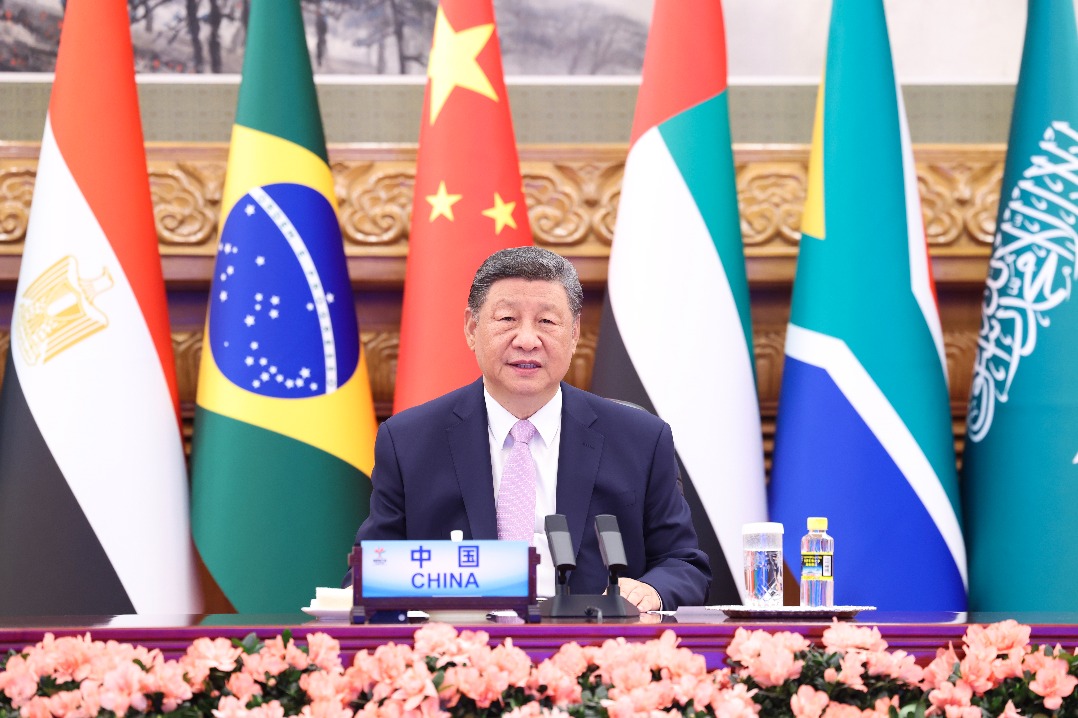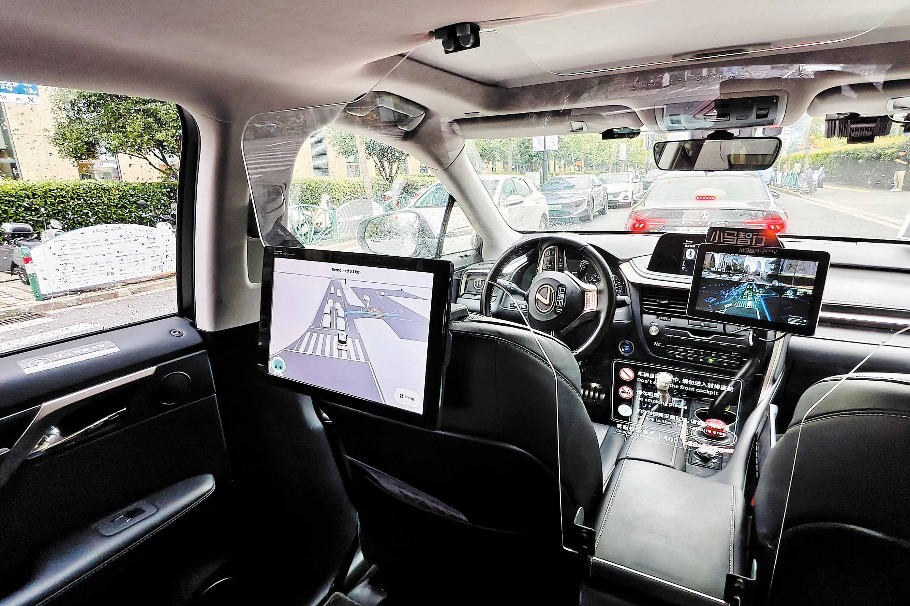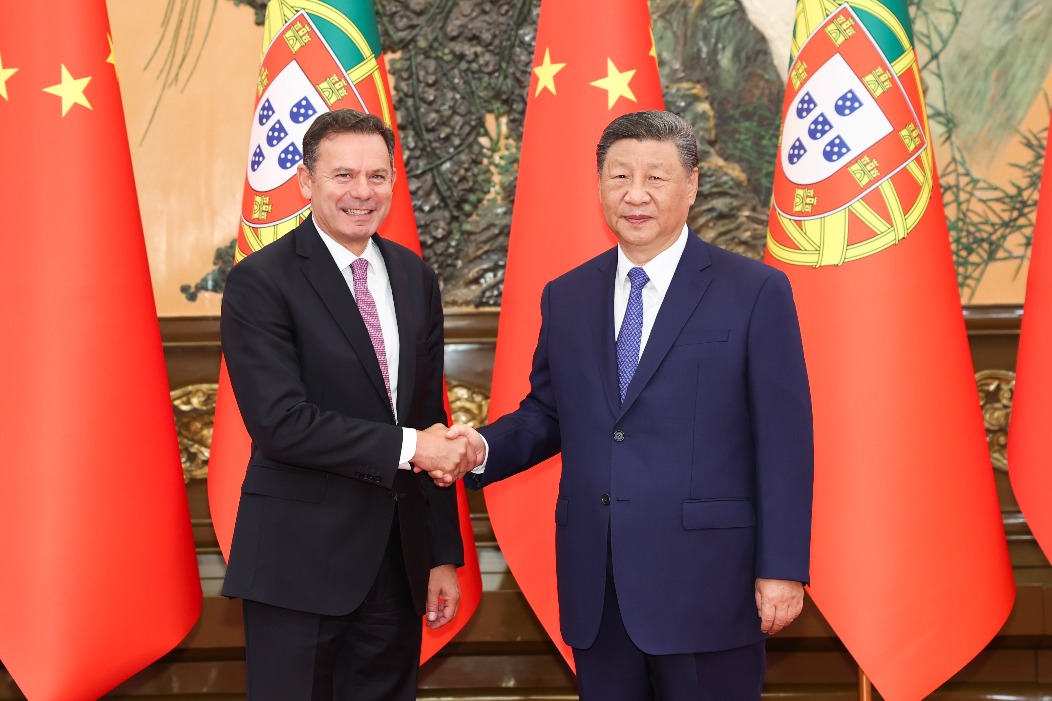HK can benefit by promoting Belt and Road

Hong Kong remains a global financial and commercial center 20 years after its reunification with the motherland. To strengthen its role as an intermediary agent between the Chinese mainland and the rest of the world, it should actively participate in the Belt and Road Initiative.
Hong Kong suffered the consequences of the 1997-98 Asian financial crisis, the 2003 SARS outbreak and the 2008 US subprime crisis, which caused a sharp decline in its economic prospects. But thanks to the "one country, two systems" policy, the Hong Kong Special Administrative Region still boasts an excellent business environment.
In these years Hong Kong's average growth rate is 3.1 percent, which is higher than the developing countries' average growth rate of 2 percent.
In 2015, the SAR ranked second globally in terms of attracting foreign direct investment. It is one of the largest foreign exchange markets and commodity exporters in the world.
But despite that, Hong Kong faces several challenges. First is slowdown in its growth rate due to lack of sufficient innovative technological development. Second is the unbalanced income distribution and high reliance on its service-oriented industrial structure. And third is the undermining of its role as an intermediary agent. From 1990 to 2004, Hong Kong was the world's largest container service port, but it dropped to the fifth position last year. Besides, in 2015, the Shanghai Stock Exchange surpassed the Hong Kong Stock Exchange in terms of market value.
The Belt and Road Initiative could improve Hong Kong's role of intermediary agent.
Hong Kong occupies a nodal point on the 21st Century Maritime Silk Road, which, along with the Silk Road Economic Belt, comprises the Belt and Road Initiative. It occupies the vital position because of its excellent geographical advantage in transportation and finance, as well as its mature, stable financial market and high-end professional talents with international experience.
Last year, China's outbound direct foreign investment ranked second globally, and more and more Chinese enterprises are likely to "go global" by taking advantage of the Belt and Road Initiative, which also offers the SAR the opportunity to transform itself from a unidirectional intermediate platform attracting foreign capital to China to a bi-directional platform connecting China with the rest of the world.
The Chinese yuan is not yet a freely convertible currency and Chinese enterprises lack sufficient foreign investment experience. Hong Kong could play a significant role in promoting connectivity of infrastructure, trade and financing through the Belt and Road Initiative to consolidate its role as a global financial and trade center.
Studies show developing countries in Asia will need about $1.7 trillion a year for infrastructure construction until 2030. Since 70 of the 100 transnational banks have branches in Hong Kong and the total initial public offerings on the Hong Kong Stock Exchange have been the highest worldwide in the past two years, it enjoys an incomparable advantage in providing a large percentage of those funds, and in the process helping to internationalize the yuan.
The Belt and Road Initiative also requires other business services such as design, construction and operation, and high-quality professional services, including legal, accounting and trading services, and Hong Kong has a pool of talents that excel in all these fields. So by becoming an active player in the Belt and Road Initiative, it can enhance and improve the quality of the professional services it offers.
Hong Kong is also a magnet for transnational companies, many of which have their headquarters or branches in the city. Last year, 1,379 transnational companies had their regional headquarters in the SAR. And by becoming an official member of the Asian Infrastructure Investment Bank in March, it has added to that advantage.
The Belt and Road Initiative will be driven by large enterprises, followed by some small and medium-sized enterprises. Studies show that many domestic SMEs will use Hong Kong as a platform to go global. And that makes it imperative for Hong Kong to become an active promoter of the Belt and Road Initiative.
The author is a researcher at the Institute of Guangdong, Hong Kong and Macao Development Studies, Sun Yat-sen University.

































